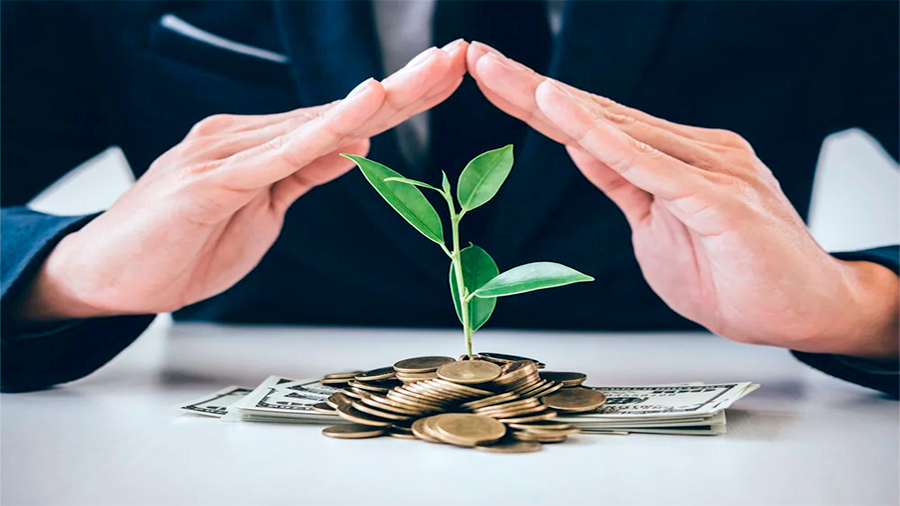Ecology As A Condition For Granting Loans In The Future
For decades, banks approved loans mainly by looking at credit history, revenue, and repayment ability. Environmental impact rarely entered the conversation. That is changing. As the climate crisis becomes harder to ignore, regulators, investors, and the public are pressuring financial institutions to factor in ecological footprint. In the near future, a company’s ability to prove that it operates sustainably may matter just as much as its balance sheet. Loans will not only finance business growth—they will also shape how responsibly that growth happens. The financial system is on track to use ecology as a condition for approval.
Why Ecology Matters To Finance
Banks are beginning to see that lending to polluting or wasteful businesses carries hidden risks. Environmental disasters can lead to lawsuits, reputational damage, and sudden costs. Companies that ignore sustainability also risk losing customers as consumers demand greener products. On the other hand, businesses with clear ecological strategies are better positioned for long-term stability. From a financial point of view, ecology is becoming a proxy for resilience. By including ecological performance in loan criteria, lenders protect themselves while promoting a healthier planet.
Climate Change As Financial Risk
Extreme weather, stricter regulation, and rising energy costs all affect profitability. Loans to companies unprepared for these shifts look less safe over time. Ecology is no longer just an ethical issue—it is financial risk management.
Investor Pressure
Large institutional investors are demanding that banks fund projects aligned with sustainability goals. As a result, financial institutions are rethinking their entire lending models.
How Ecology Could Shape Loan Decisions
Future loan applications may require businesses to disclose carbon footprints, waste management systems, and resource use. Banks will analyze these factors alongside financial ratios. A company that demonstrates energy efficiency, renewable energy adoption, or sustainable sourcing will score higher in evaluations. By contrast, those with poor ecological practices may face higher interest rates or outright rejection. Just as credit scoring transformed lending decades ago, ecological scoring could become the next big filter.
Metrics That Matter
Banks will look at carbon emissions per unit of revenue, water consumption, recycling rates, and supply chain transparency. These metrics provide measurable insights into environmental responsibility.
Sector-Specific Standards
Different industries will face tailored benchmarks. Agriculture may be judged on pesticide use, manufacturing on emissions, and real estate on energy efficiency of buildings.
| Ecological Factor | How Banks Could Measure It | Impact On Loan Approval |
|---|---|---|
| Carbon Emissions | Tonnes of CO₂ per year or per unit of output | Low emissions improve approval chances |
| Energy Source | Share of renewable vs. fossil energy used | Higher renewable share leads to better terms |
| Resource Use | Water consumption, raw material efficiency | Excessive use raises costs and risks rejection |
| Waste Management | Recycling and disposal practices | Strong systems increase lender confidence |
Benefits Of Linking Ecology And Credit
Tying ecological performance to loan approval offers more than risk reduction. It creates incentives for businesses to adopt greener practices. Access to credit becomes a reward for sustainability, pushing firms to innovate in order to secure financing. This shift also aligns banks with global climate goals, making them active players in the transition to a low-carbon economy. For society, it means financial flows support businesses that contribute positively rather than those that harm the environment.
Encouraging Innovation
Start-ups developing clean technologies will find it easier to access funding, giving them a competitive edge and accelerating adoption of green solutions.
Aligning With Policy
Governments pushing for climate neutrality will support banks that enforce ecological criteria, making this trend not just voluntary but regulatory in nature.
Challenges And Criticisms
While the idea is promising, it is not without challenges. Measuring ecological performance consistently is complex. Small businesses may struggle with reporting requirements. Critics worry that strict green lending policies could limit access to credit in developing regions or for firms still transitioning. There is also the risk of “greenwashing,” where companies exaggerate their sustainability claims to secure loans. Banks must balance ambition with fairness, ensuring that ecological lending criteria promote real change without becoming a barrier to entry.
The Reporting Burden
For small firms, preparing detailed environmental reports could feel overwhelming. Support systems and simplified standards will be needed to prevent exclusion.
Avoiding Greenwashing
Lenders will have to verify data with independent audits and certifications. Otherwise, the system risks rewarding clever marketing rather than genuine sustainability.
Examples Of Early Moves
Some banks are already experimenting with ecology-based lending. In Europe, green loans tied to energy efficiency improvements are gaining ground. Companies can access lower interest rates if they commit to measurable environmental upgrades. Development banks in Asia and Latin America are piloting programs where borrowers must show ecological benefits alongside financial plans. These early examples suggest the trend is not theoretical but already unfolding. Within a decade, ecological scoring could be as common as credit scoring is today.
Green Loan Products
From reduced-rate mortgages for energy-efficient homes to loans for renewable energy projects, financial products are increasingly tied to ecological goals.
Corporate Financing Conditions
Large corporations seeking syndicated loans are often required to meet sustainability targets, with penalties for failing to deliver improvements.

The Future Landscape Of Lending
If ecology becomes a standard loan condition, the financial system will look different. Banks will act as gatekeepers of sustainability, directing capital toward eco-friendly businesses and away from polluting ones. Entrepreneurs will need to think about ecological impact as early as the business planning stage, knowing it affects financing options. Over time, this could reshape entire industries, accelerating the global shift toward greener economies. For borrowers, ecological responsibility will not just be about reputation—it will be about survival in the financial marketplace.
Entrepreneurial Adaptation
Start-ups and SMEs will need to integrate sustainability into their DNA, not as an afterthought but as a prerequisite for access to credit.
Financial Culture Shift
Lending will no longer be neutral. Banks will actively influence how economies grow by rewarding sustainable choices and penalizing harmful ones.
The Conclusion
Ecology is moving from the margins to the center of financial decision-making. In the future, loan approvals may depend as much on carbon footprints and energy use as on credit scores and cash flow. This shift reflects a recognition that environmental risk is financial risk—and that the two are inseparable. For businesses, the message is clear: sustainability will not only win customers and investors, it will unlock credit. For banks, it means becoming partners in building a greener economy. The age of ecological lending is not a distant concept; it is the next step in how finance defines responsibility and risk.


